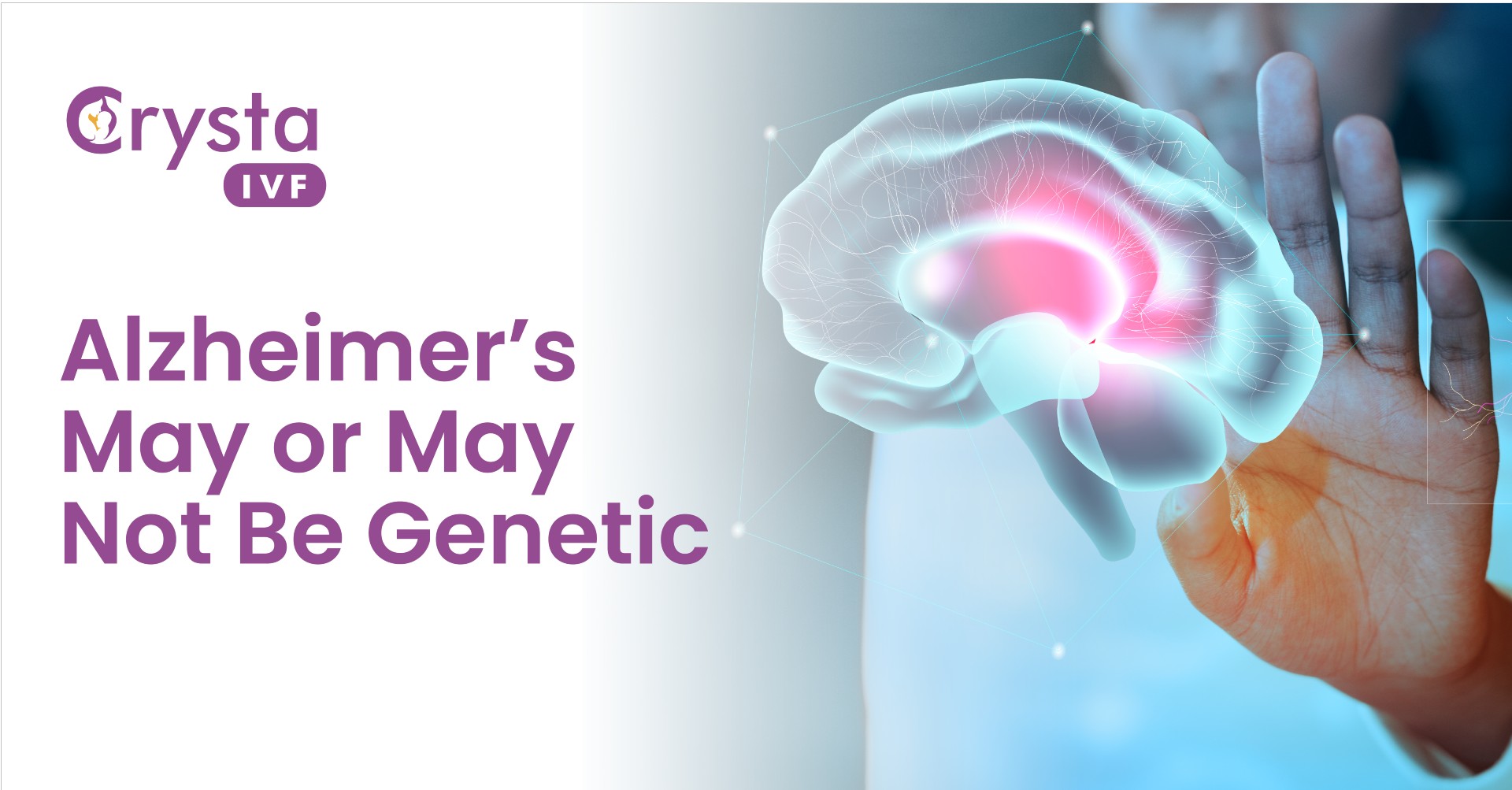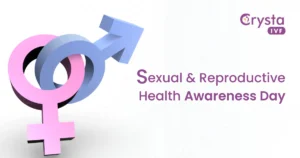Having a history of Alzheimer’s Disease in Parents and Siblings are more likely to develop Alzheimer’s but not necessarily. This World Alzheimer’s Day, i.e., 21st September 2022, the global focus is to spread awareness about Dementia.
Although Dementia and Alzheimer’s Disease are used interchangeably, they are not the same. Dementia is just an umbrella defining a set of symptoms that can be because of Alzheimer’s, but it is not a disease.
However, before we dive deep into the symptoms of Alzheimer’s Disease and Dementia, it’s essential to understand Alzheimer’s Disease and Is Alzheimer’s Genetic?
What is Alzheimer’s Disease?
Alzheimer’s is one of the specific brain disorders that impact over 5 million people worldwide. It develops gradually and gets worse over time.
In the initial phase, Alzheimer’s Disease necessarily impacts the portion of the brain that associates with learning. This, in turn, results in significant impairment of the memory, thinking, and reasoning skills of the affected person.
For the prophase symptoms of Alzheimer’s Disease, it is profoundly referred to as the Loss of Memory Disease too.
Now, if you have a history of Alzheimer’s running in the family and fear its transmission in future generations, it’s necessary to understand the correlation between Alzheimer’s And Genetics.
Genetics and Alzheimer’s Are Related: Know-How?
There is no denying that genetic disorders might impact newborns, but not always. Before you get tensed about the risk of hereditary Alzheimer’s Disorder in your child, know the genes associated with the same.
Primarily, two varied types of genes decide whether or not a person might get affected by a genetic disease.
Risk Genes:
Risk Genes reveal the probability of getting impacted with a genetic disorder. In the case of Alzheimer’s Disease, the researchers define risk genes as AP0E-e4. The existing studies and researches reveal that more than 40 to 65% of people with Alzheimer’s have AP0E-e4 genes.
Furthermore, there are two more copies of APOE, i.e., APOE-e2 and APOE-e3.
Now, the question arises; What is the risk of transmission of Alzheimer’s Disease with the possible variants of APOE?
- Children who get a pass on of APOE-e4 from their mother are at some risk of Alzheimer’s Disease. Also, with APOE-e4, you can observe the symptoms of Alzheimer’s at an early stage.
- Now, talking about the APOE-e2 and APOE-e3, they possess exposure to a higher risk of hereditary disease in a child. The reason for the same being, these genes do not show any early warning signs and start worsening with age.
Deterministic Genes:
Deterministic genes, unlike risk genes, are an assurance that the children inheriting the genes will definitely be impacted by the genetic disorder. Scientists have found these Deterministic genes only in a few hundred families.
To be more precise about facts, Deterministic Genes exist only in 1% of Alzheimer’s Disease Cases. The symptoms of Deterministic Genes reflect with age. You can observe the signs of the Loss of Memory Disease for deterministic genes in the mid-40s or early 50s.
Know The Preventive Measures to Control Alzheimer’s Disease:
The best way to deal with Alzheimer’s Disease is its awareness and the preventive measures to be taken on time.
The hereditary and genetic disorders that cause Alzheimer’s Diseases are rare. However, it can be prevented if you can be cautious about genetic testing.
After the detailed analysis of ‘Familial Alzheimer’s,’ there are several clues that indicate the understanding of Alzheimer’s disease.
If there are chances that Alzheimer’s can impact a person, then the risk and deterministic genes affect the production and processing of the beta-amyloid. It is one of the primary protein fragments and the essential component of the plaques.
Any variations in the acceptable limits of beta-amyloid can lead to the degradation of the brain cells.
Determination of the Alzheimer’s Disease:
There are two significant ways in which it is possible to detect Alzheimer’s Disease in a person. If you know that you have a history of Alzheimer’s Disease, then it would help you get yourself, and your child tested for:
- The levels of beta-amyloid
- Also, get a diagnosis for deterministic genes
If you are detected with any of the above, you shall consult the doctor and take FDA-approved and recommended drugs to remove the amyloid affecting the brain cells.
Special Precautionary Measures to Avoid Genetic Disorders Like Alzheimer’s Disease:
Most couples decide to seek IVF Treatment over natural pregnancy to avoid any kind of congenital disabilities. The risk of transfer of genetic disorders significantly decreases through IVF Treatment compared to natural pregnancy.
Also, if you notice any kind of early signs of dementia or Alzheimer’s Disease in your child, you shall opt for genetic testing.
Signs and Symptoms of Dementia and Alzheimer’s Disease:
People reflecting the signs of Dementia struggle in performing their day-to-day activities. Some of the common symptoms indicating Dementia in a person include:
- Lack of Reasoning Skills
- Poor Judgement Skills
- Loss of Memory Disease
- Diverted Focus & Attention
- Irrelevant Behaviour
- Improper Use of Language
Alzheimer’s Disease is one of the most prevailing types of Dementia, and it is not the only one.
Dementia and Alzheimer’s Disease can lead to severe complications if not controlled on time.
Common Consequences of Alzheimer’s Disease:
Alzheimer’s Disease can lead to severe complications such as:
- With the worsening of Alzheimer’s Disease, this forgetting disease leads to memory loss and severe cognitive disabilities.
- A person with Alzheimer’s can ask repetitive questions.
- People suffering from Alzheimer’s have problems with calculations, paying bills, or handling money.
- You might also get to see personality or behavioral changes in people who have Alzheimer’s.
- If Alzheimer’s Disease is not addressed on time, the person might be unable to complete routine tasks or take to accomplish the same.
Know Dementia, Know Alzheimer’s- Stay Away From Myths:
While there can be severe complications of Alzheimer’s and Dementia, with the use of advanced science and the help of doctors, they can be controlled. If you fear the passing of Alzheimer’s in your upcoming generations, it is better to consult a gynecologist in India and plan your pregnancy accordingly.
Sticking to the myths and seeking the wrong decisions can have a harmful effect; better seek the correct facts with the proper medical consultation at the right time.
In case you need assistance in your family planning and whether or not IVF Treatment can control the genetic transmission of Alzheimer’s Disease, call the doctors at Crysta IVF.
Stay Tuned for More Information on Pregnancy and Being Proud Parents of a Healthy Baby.




